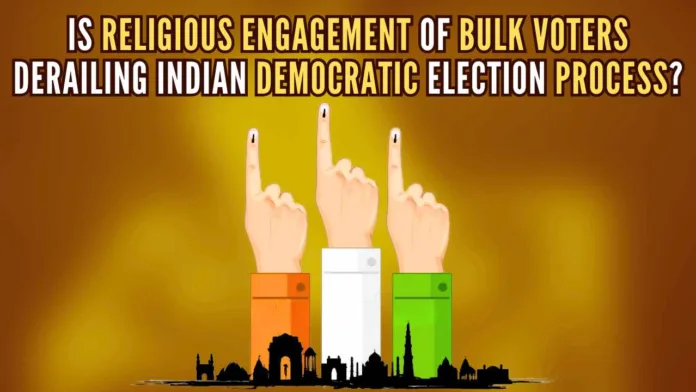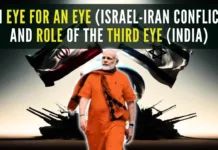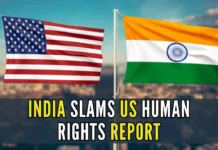
How the toxic political climate created by select religious groups hampering democratic election process
In India, every election cycle has been marred by controversy because of a toxic political climate created by select religious groups, constantly wanting special privileges and benefits, for their followers only. This often leads to serious rifts between those who managed to win on the strength of exclusive votes of select religious groups, and those who were denied any benefits, because of their indigenous faith. Is there any scope for Bulk Voting in a democracy, that too on religious orientations?
Bulk voting causes democratic backsliding, as religious leaders assert vociferously for exclusive benefits like job reservations, free educational benefits, scholarships, bank loans, and subsidized tours to foreign religious places. Unfortunately, the Indian electoral and governance jurisprudence has no provisions to thwart bulk voting and the practice of exclusive promises only to select religious followers.
Bulk voting religious groups and communities, determine who wins or loses in many Constituencies, hence politicians during election time frequently meet religious leaders, for clandestine discussions, revolving around fresh benefits for influencing the hearts and voting thumbs of such groups.
When politicians helplessly rely on religious groups, their denominations (caste), and numerical strength, many issues have to be brushed under the carpet.
Economic issues take a back seat as electioneering becomes all about bargaining for votes, trading in votes, and buying votes, in the name of pampering select religious groups. Unsurprisingly, religion has been regularly invoked during every election season, and the majority Hindu voter apathy has made the polls a contest between hustlers and political dynasties, propped up on the strength of bulk-voting religious groups.
Indian elections have thus become indirectly a census of the strength of religious groups specializing in bulk voting. So this is the sad maturity of our democracy. Political parties engage in regular targeting and more intrusive micro-targeting, for distributing all kinds of largesse on only select religious groups, excluding the Hindus.
When the line between religion and politics gets entwined, each to some extent becomes complicit in the providential authority of the other. This distorts democracy and the way in which elections are run in the country. In this context, democracy as a competitive process in which citizens freely elect their leaders are relegated and thrown out of the window.
The logic here is not based on universal ideas of human rights and citizenship but rather on networks of certain religious patronage, and spiritual warfare. It is an insecure means of mobilizing support and one that is constantly at risk of corrupt indulgence in order to fund private benefit.
Select religious groups have deeply penetrated into the election process at every stage, from the selection of candidates and acquiring ministerial berths, thereby emphasizing the importance of layering foreign refugees, professing a certain faith, in every Constituency. The so-called secularisation and democratization following a ‘Western’ model, has put indigenous faiths at a great disadvantage. Lack of unity, docility, and broad-mindedness of the indigenous faiths, has led to their being subjected to the ravenous appetite for new converts, of certain religious groups.
Priests, politicians, and political families recognize the vitality of select religions and use them for political purposes, deliberately connecting religion, and linking it to the political preferences of only these groups of religious practitioners. In the end, the election results are an evaluation of whether the faithful obeyed and voted, as conspired and decided jointly by religious leaders and politicians.
The problem with this diabolical rule that one should “vote one’s religious group” is that election campaigns are fuelled by violent rhetoric, inflammatory speeches, and hate speeches. Youth radicalization happens to influence young believers to make certain political choices, decided by their religious leaders as final and irrevocable.
Another grave issue threatening the existence of the nation itself is the clandestinely imported Bangladeshi infiltrators, who have been spread out across many Constituencies, in order to swing the elections in favour of candidates from political parties willing to bend and twist for a few extra votes. In many Constituencies, it is no longer the will of the people that decides the electoral fortunes but the ‘Infiltrator’s will’, that is decisive. Only the Assam government has shown the guts to end this electoral sabotage by infiltrators. Delhi, Hyderabad, and many other places continue to be under the firm grip of infiltrators, who have managed to secure Aadhar cards and ration cards, and thereby legitimize their illegal entry and stay. The next government has to address this issue sternly, or very soon India will face a situation similar to that of Europe, inundated by religiously crafty migrants, out to extinguish European customs, culture, and religion. Adoption of the Western model of elections is leading to a clash of religions, more pronounced during election time. The government needs to work on an Indianized pattern of elections, relevant to suit our country.
It is necessary that exclusive benefits based only on religion, be legally prohibited, as a claim of legitimate expectation may arise from an express promise by a political leader for granting new benefits or to continue certain existing benefits indefinitely, which by implication will be denied to other communities. The segment of the electorate following certain religions expects that they will be granted special privileges and benefits which implicitly goes against the principles of fairness, equality, and morality. It is time to put an end to ‘infiltrator’s choice’ and threats of religious fundamentalist groups, constantly demanding exclusive privileges and benefits.
Note:
1. Text in Blue points to additional data on the topic.
2. The views expressed here are those of the author and do not necessarily represent or reflect the views of PGurus.
For all the latest updates, download PGurus App.
- Weaponizing Narcs – To Return them to Sender - April 15, 2024
- Silence of political leaders on drug menace in election manifestos – Will Bharat end up under the category of “apparently endangered country”? - April 6, 2024
- Is religious engagement of bulk voters derailing Indian democratic election process? - April 3, 2024










